 Petzlover
Petzlover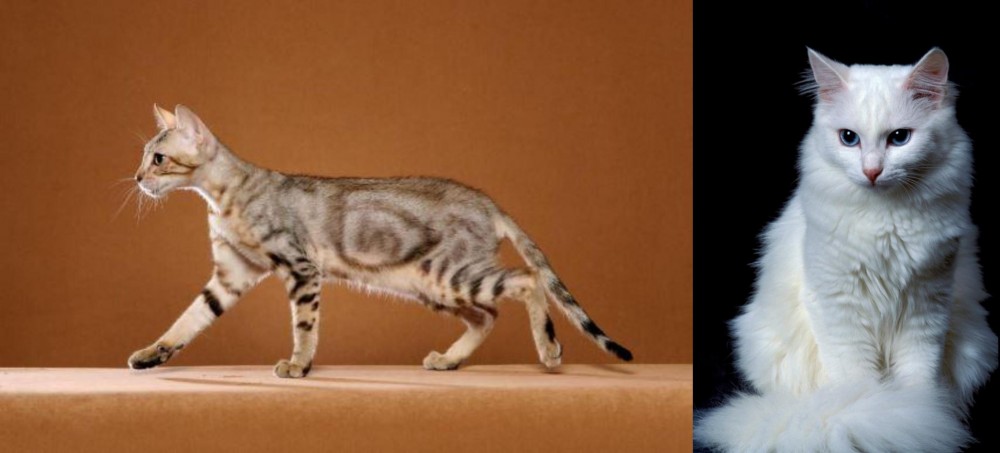 Sokoke is originated from United States but Turkish Angora is originated from Turkey. Both Sokoke and Turkish Angora are of same weight. Both Sokoke and Turkish Angora has almost same life span. Both Sokoke and Turkish Angora has same litter size. Sokoke requires Low Maintenance. But Turkish Angora requires Moderate Maintenance
Sokoke is originated from United States but Turkish Angora is originated from Turkey. Both Sokoke and Turkish Angora are of same weight. Both Sokoke and Turkish Angora has almost same life span. Both Sokoke and Turkish Angora has same litter size. Sokoke requires Low Maintenance. But Turkish Angora requires Moderate Maintenance
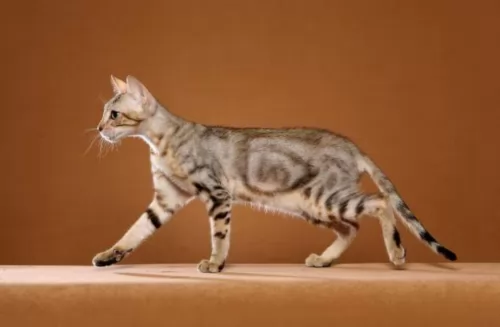 Compared to other breeds of cat, the rare Sokoke Forest Cat is a fairly new natural breed. It comes from the Sokoke district of eastern Kenya but was developed in the USA.
Compared to other breeds of cat, the rare Sokoke Forest Cat is a fairly new natural breed. It comes from the Sokoke district of eastern Kenya but was developed in the USA.
It is in fact, named after the Arabuko Sokoke National Forest, from where the wild foundation stock came from. Wildlife artist Jeni Slater started breeding these cats in the 1970s. They eventually reached Denmark, where further breeding continued, with the cat becoming popular with local cat fanciers, and laid the foundation of the breed in Europe.
Today, there are just a few breeders registered in the UK and TICA, The International Cat Association lists the Sokoke cat as a New Preliminary Race and it was recognized by FIFe in 1993.
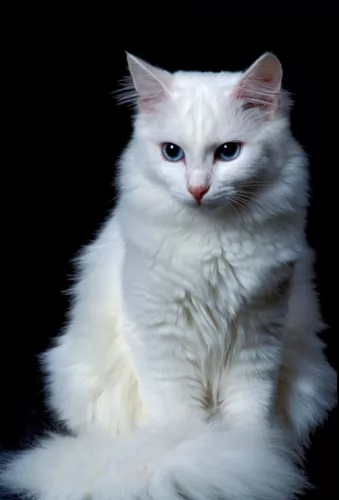 The Turkish Angora is a very old breed that naturally developed. It is thought that the breed developed in Turkey in the Ankara region formerly known as Angora.
The Turkish Angora is a very old breed that naturally developed. It is thought that the breed developed in Turkey in the Ankara region formerly known as Angora.
There are records that indicate that the Turkish Angora made an appearance in the UK as early as the 14th century already. Also, the beautiful longhaired cat was also introduced to the United States.
A breeding program was started for these cats in the early 20th century and it was then taken to Canada in 1963 and accepted as a championship breed.
While white was the only acceptable color at first, they now come in many different colors.
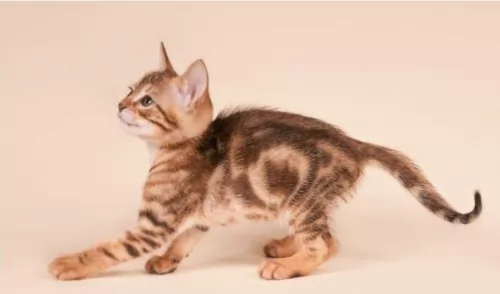 The Sokoke is a medium-sized cat with a long, lean body and slender legs. The hind legs are somewhat longer than the front legs. The head is smallish and round and he has a constantly alert look to him.
The Sokoke is a medium-sized cat with a long, lean body and slender legs. The hind legs are somewhat longer than the front legs. The head is smallish and round and he has a constantly alert look to him.
A striking characteristic of the Sokoke cat is its tabby fur, which people say looks like the bark of a tree and it is brindle in coloring.
The tail is medium to long and the ears are also fairly large, The eyes are large and almond-shaped and can be greenish to brown. The coat is short and coarse.
Cat lovers enjoy these playful, curious, intelligent, and family-orientated cats. In spite of their wild side, they adapt easily into different homes.
They’re inquisitive and will follow you, much like a dog. They will even enjoy a leash being put on them and being taken for a walk. They’re very sociable and vocal too and get on with everyone, children and other pets included.
They’re playful cats, loving to jump and climb and then look down at you from their high perches. Easily bored, you will need to provide fun and games continuously.
They enjoy being involved with everything you’re doing and form a strong bond with their owners. Because the Sokoke is social and affectionate, they require quite a lot of attention, and if they don’t get the attention they crave, they meow in anxiety.
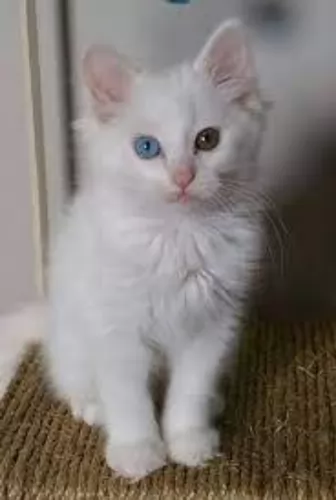 This is a medium-sized, muscular cat that can weigh between 3 and 6kg. It is a long-haired cat and the single coat has no undercoat.
This is a medium-sized, muscular cat that can weigh between 3 and 6kg. It is a long-haired cat and the single coat has no undercoat.
While the Turkish Angora is essentially white, its coat can come in a number of other colors.
The cat’s body if firm and fairly long, the legs are long with the hind legs being longer than the front legs, The tail is long and plumed, the head has large fairly pointed ears that can have tufts of fur. The eyes are large and almond-shaped and slant somewhat upwards. The color of the eyes can be blue, green, gold, amber.
This is a very active, athletic cat and he likes nothing more than to leap up on to high perches to survey his surroundings. They are intelligent, affectionate cats and they seem to gravitate towards one special human family member.
The cat is also protective of his human family. If any family member wants to stroke and pet them, they are absolutely delighted, just lapping up the attention.
They are smart enough to learn a few tricks too. They aren’t vocal cats but are sweet and quiet as well as being affectionate, making them perfect companions.
They don’t do well with changes, and a sudden change in his lifestyle can be upsetting for him.
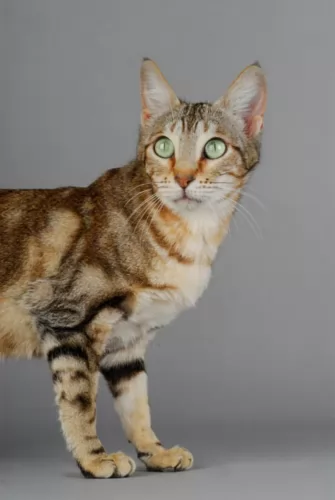 Your Sokoke is a very social cat and he will get on particularly well in a home with children who have been taught to be kind and gentle with animals.
Your Sokoke is a very social cat and he will get on particularly well in a home with children who have been taught to be kind and gentle with animals.
They are able to adapt well to homes where there are other pets too. They just love exercise and lots of fun. They don’t like being in a home where the owner is out at work all day. The solution to this is to provide him with another cat as a companion.
Sokoke cats are great with people of all ages, and when you bring one of these lively cats into your home, make sure he also receives his share of love and companionship.
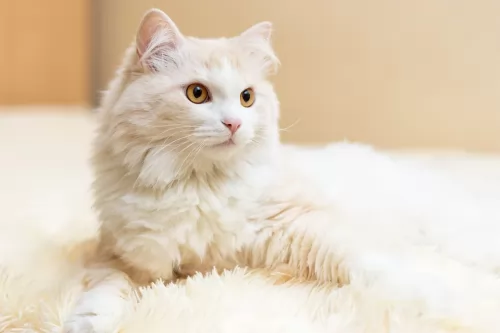 Beautiful to look at, this cat has got all the characteristics that make him a wonderful pet. He is playful well into adulthood and will love an assortment of stimulating toys to be amused by.
Beautiful to look at, this cat has got all the characteristics that make him a wonderful pet. He is playful well into adulthood and will love an assortment of stimulating toys to be amused by.
He is a sociable breed and doesn’t enjoy being left alone for hours. It would be far better to have another feline friend to keep him company.
Active and entertaining, you’ll be amused by your Turkish Angora and be so glad that you made the decision to bring such a charming creature into your home and heart.
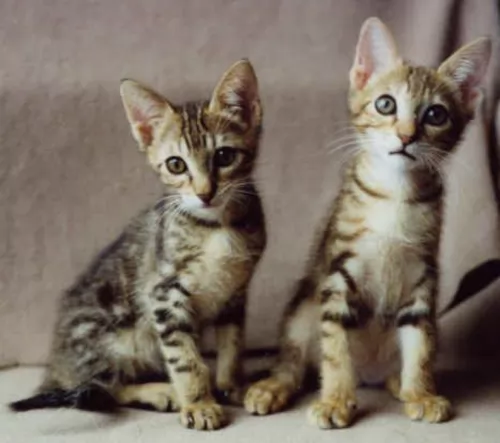 Sokoke cats are generally healthy and have no inherited diseases. To ensure that your Sokoke stands a chance of having a healthy life, you need to have him vaccinated against the life-threatening cat diseases there are.
Sokoke cats are generally healthy and have no inherited diseases. To ensure that your Sokoke stands a chance of having a healthy life, you need to have him vaccinated against the life-threatening cat diseases there are.
If your Sokoe cat isn’t his usual self day after day, make a point of getting him to the vet just as soon as possible.
Parasites are a terrible scourge with cats, and in fact, the number one cause of hair loss in cats is fleas. The bite of a flea can cause an allergic reaction. Your cat can become miserable with continuous biting, itching, and scratching and this can all lead to hair loss.
It is a wise move to speak to your vet about a good product to treat your furry friend with.
There can actually be many causes of diarrhea in cats and one of them is parasites, but it can also be caused by a viral infection or food allergy or something else.
You want to get your cat to the vet who can help you bring it under control. You may also have to feed your cat a bland kind of diet to help the cat’s digestive tract recover from the diarrhea.
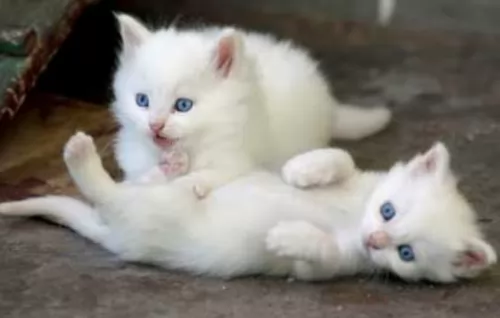 Turkish Angoras are generally healthy, but white cats with blue eyes can be prone to deafness. It is the W gene that is responsible for the white coat and blue eyes. Unfortunately, the presence of a blue eye can indicate deafness in the cat. But there are these cats that have 2 blue eyes and they have normal hearing.
Turkish Angoras are generally healthy, but white cats with blue eyes can be prone to deafness. It is the W gene that is responsible for the white coat and blue eyes. Unfortunately, the presence of a blue eye can indicate deafness in the cat. But there are these cats that have 2 blue eyes and they have normal hearing.
Another problem that has been seen in this beautiful cat breed is Ataxia which is a deadly neuromuscular disorder.
The most common sign of ataxia is an abnormal way of walking and the cat is actually unsteady on his feet. Sometimes the feet can even drag on the ground. Thankfully, screening has reduced the incidence of the disease.
Also, watch out for hypertrophic cardiomyopathy, a kind of heart disease that causes the heart muscle to enlarge.
Just remember that with a cat, diet can also play a huge role in the health of a cat. Your furry friend needs the right meaty foods with the right balance of nutrients to remain healthy and strong.
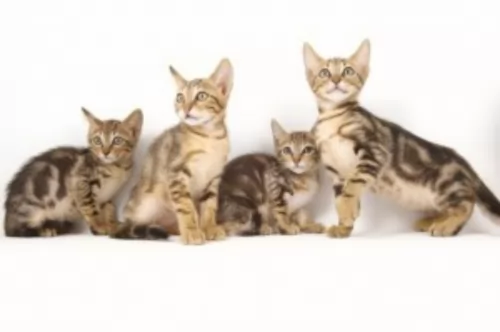 Because the Sokoke’s coat is short and close-lying, with little or no undercoat, brushing once a week will be sufficient.
Because the Sokoke’s coat is short and close-lying, with little or no undercoat, brushing once a week will be sufficient.
The Sokoke cat is very energetic, and he will need games, toys, and attention to keep him physically and mentally stimulated. They love climbing so a climbing tree and other kind of equipment will be a good idea.
Provide your cat with a litter box and ensure it is kept scrupulously clean by removing the cat’s feces every single day.
Diet is of critical importance to the health and happiness of a cat. Some people try to feed their cats human foods and wonder why their cat is continuously sick. A cat is a carnivore and he requires meat.
You can speak to your vet about the best kind of commercial cat food there is for your cat. Read the label and feed him portion-sizes as directed.
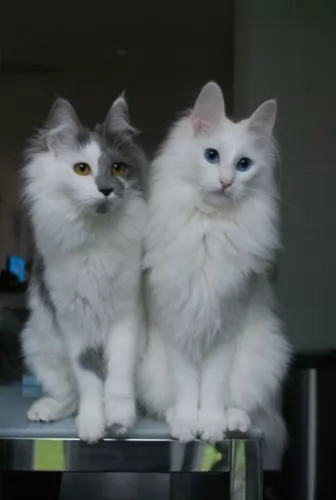 The Turkish Angora has a single coat and the lack of an undercoat makes it easy to brush him and keep the coat soft and silky. Also, the coat is only fully developed when the cat is about 2 years old.
The Turkish Angora has a single coat and the lack of an undercoat makes it easy to brush him and keep the coat soft and silky. Also, the coat is only fully developed when the cat is about 2 years old.
Check the inside of the ears. You may not want to clean them out yourself as you have to be very careful not to damage the ears. The vet and cat groomers can help you with this.
Keep your Turkish Angora’s litter box spotlessly clean. Cats are very particular about the cleanliness of their litter box and the feces will need to be removed every single day.